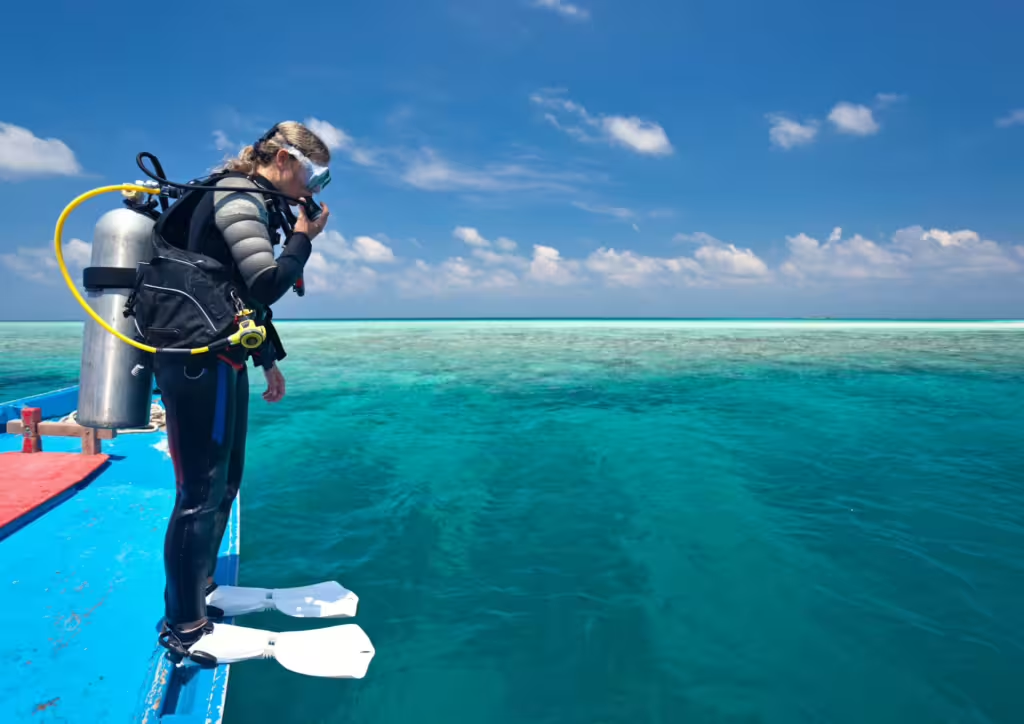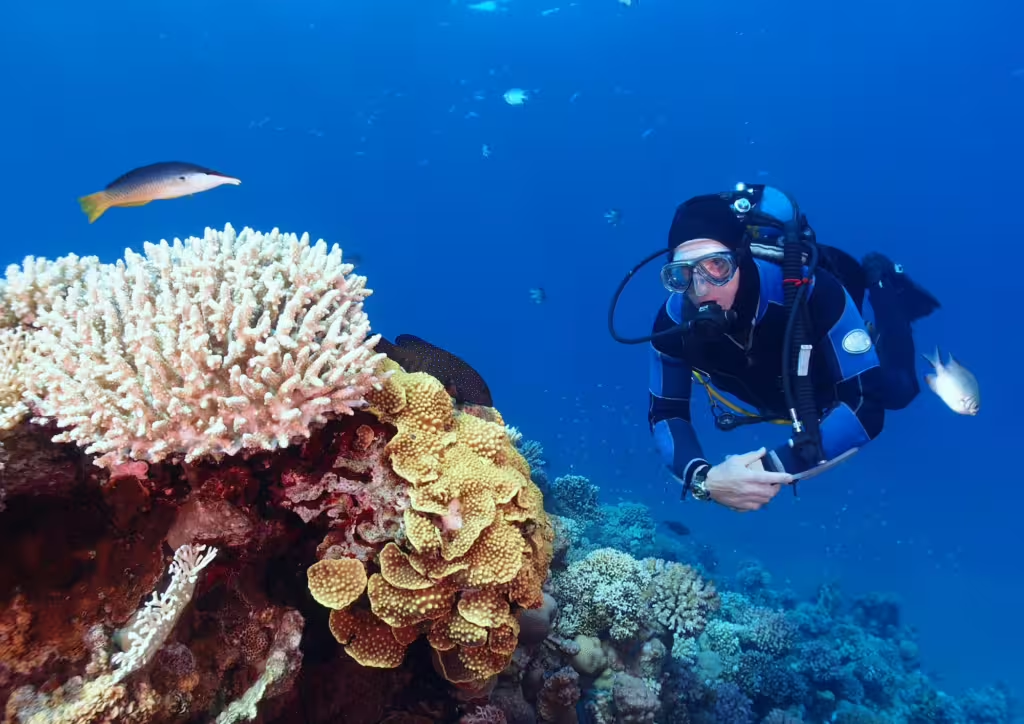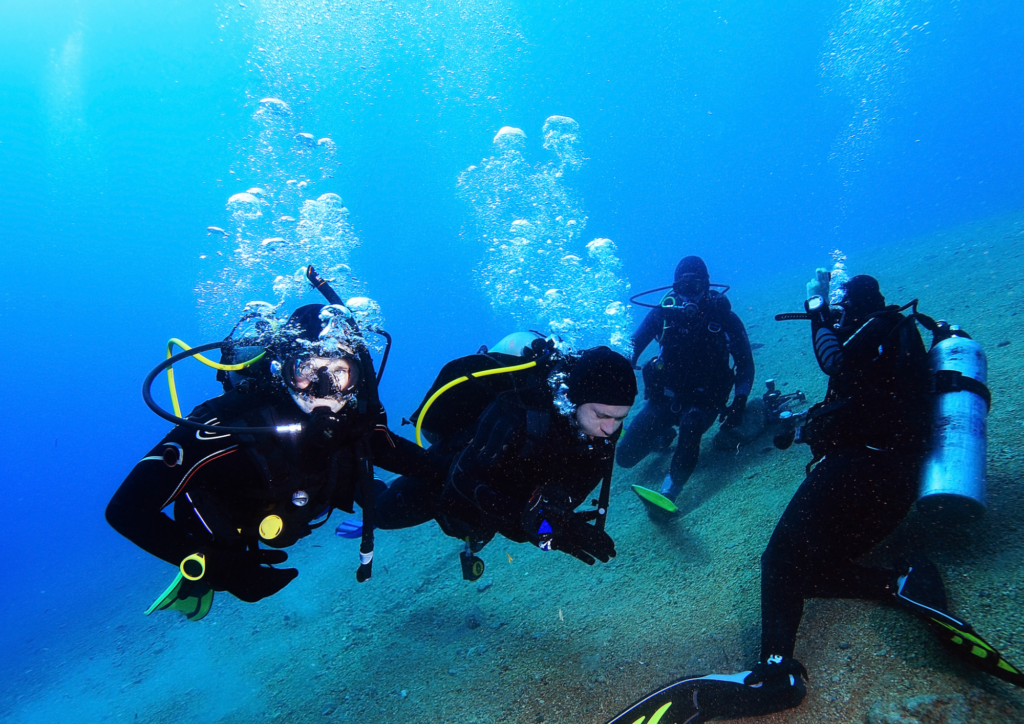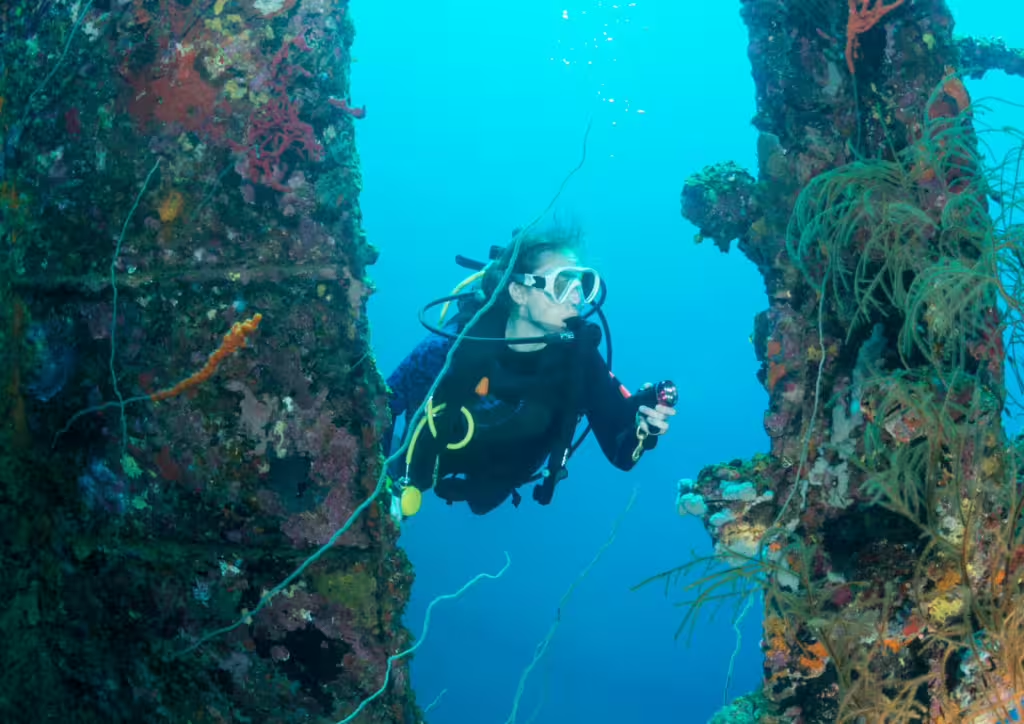Taking a Bali Diving Course is the best way to explore the island’s incredible underwater world safely and confidently. A Bali Diving Course equips you with essential skills such as buoyancy control, navigation techniques, and proper equipment use, ensuring every dive is both enjoyable and secure. Whether you are a beginner or looking to refresh your skills, a Bali Diving Course helps you build a strong foundation to discover Bali’s coral reefs and famous shipwrecks.
Understanding the Importance of Safety in Diving
Diving is one of the most exhilarating experiences, and taking a Bali Diving Course allows you to explore the island’s vibrant underwater world safely. With great adventure comes great responsibility, and a Bali Diving Course emphasizes the importance of mastering safety protocols to minimize risks during dives. From buoyancy control and proper equipment use to recognizing signs of distress, a Bali Diving Course equips divers with the essential knowledge to dive with confidence.
Instructors also highlight teamwork, communication, and understanding the local marine environment, making every dive safer and more enjoyable. By completing a Bali Diving Course, divers gain the skills needed to handle challenges underwater while fully experiencing the breathtaking marine life Bali has to offer.
Mastering Diving Equipment: From Gear to Gills

Mastering the use of diving equipment is a critical component of any Bali diving course. Essential gear includes regulators, which allow divers to breathe underwater by delivering air from their tanks; buoyancy control devices (BCDs), which enable divers to maintain their desired depth; wetsuits for thermal protection, and fins that enhance mobility. Familiarizing yourself with each piece of equipment not only ensures safety but also optimizes your overall diving experience.
Maintenance of this gear is equally important; regular checks for functionality and cleanliness can prevent issues that may arise during dives, such as equipment malfunction or restricted movement in the water. Equally vital to utilizing your equipment is understanding how each component interacts with the other during a dive.
Practicing with your gear in a controlled environment, such as a pool or shallow water, allows you to develop confidence before embarking on deeper exploratory dives in Bali’s extraordinary underwater landscapes. During your diving course, you’ll also be guided by experienced instructors who will share invaluable tips on equipment usage, care, and navigating diverse marine environments, equipping you with the knowledge necessary to achieve safe and enjoyable dives in the beautiful waters surrounding Bali.
Navigating Underwater: Techniques and Tips
Navigating underwater is one of the essential skills taught in a Bali Diving Course, as it ensures that divers can explore the mesmerizing underwater world safely and efficiently. Divers are introduced to various navigation techniques, including the use of a compass, which is crucial for maintaining a proper course and orientation in the often disorienting underwater environment.
Additionally, natural navigation techniques, such as observing and using the underwater topography or the behavior of marine life, offer divers alternative methods to track their movements. Familiarity with these navigation methods can make all the difference when it comes to safely returning to the starting point after an exhilarating dive, helping to instill confidence and competence in divers of all experience levels.
The importance of practicing these navigation techniques cannot be overstated. While technology provides tools such as dive computers or GPS devices, understanding the fundamentals of underwater navigation enhances a diver’s overall experience. Using a compass, divers learn to coordinate the angle and direction of their dive, while honing their ability to recognize landmarks and currents. In a Bali Diving Course, divers are encouraged to practice these skills in various environments, helping to develop a strong sense of direction underwater and ensuring their adventures are both safe and unforgettable.
Environmental Awareness and Coral Conservation

Environmental awareness is pivotal in any Bali Diving Course, as it empowers divers to understand the delicate balance of marine ecosystems. Coral reefs, often referred to as the “rainforests of the sea,” are not just beautiful underwater landscapes but also critical habitats for numerous marine species. Understanding the impact of human activities, such as pollution, overfishing, and irresponsible tourism, is essential for preserving these vital ecosystems.
During the course, participants learn how their actions as divers can significantly affect coral health and what they can do to minimize harm, fostering a mindset of conservation that extends beyond the dive site. Moreover, divers play a crucial role in coral conservation efforts. By practicing responsible diving techniques—such as maintaining buoyancy control to avoid damaging corals and adhering to designated dive paths—divers contribute to the protection of underwater environments.
The Bali Diving Course emphasizes the importance of being proactive in conservation efforts, encouraging divers to engage in local reef clean-ups and advocacy for sustainable practices. As divers become more aware of their surroundings, they are better equipped to educate others and promote the preservation of coral reefs, ensuring these underwater wonders are protected for future generations.
The Benefits of Taking a Diving Course in Bali
Taking a diving course in Bali provides a multitude of unique advantages that extend far beyond mere training. Bali is renowned for its rich biodiversity, showcasing a vibrant array of marine life from colorful coral reefs to majestic manta rays. With crystal-clear waters and diverse underwater ecosystems, students have the opportunity to learn in one of the world’s top diving destinations. The stunning underwater landscapes serve as a remarkable backdrop, making each dive not just a lesson but an unforgettable experience that deepens one’s appreciation for oceanic environments.
This combination of nature and instruction creates a perfect learning atmosphere for both beginners and seasoned divers looking to refine their skills. Moreover, the expertise of local instructors plays a crucial role in mastering the essential skills covered in a Bali diving course, such as safety protocols, equipment usage, and underwater navigation.
These professionals bring a wealth of knowledge about the region’s marine ecosystems, providing invaluable insights and tips for safe diving. Their familiarity with local conditions ensures that you will not only learn the skills necessary for diving but also understand how to navigate and appreciate Bali’s unique underwater landscape responsibly. Ultimately, a Bali diving course offers an unparalleled learning experience that prepares divers for adventures, both in Bali and beyond.
What to Expect After Completing Your Diving Course

Upon completing your Bali Diving Course, you open the door to a plethora of exciting opportunities that extend far beyond the classroom. As a certified diver, you’re now eligible to pursue advanced certifications, which can elevate your skills and expertise in various diving specialties, such as wreck diving, underwater photography, or even technical diving. Each further qualification not only enriches your diving knowledge but also builds your confidence as you explore the underwater world more extensively.
Additionally, many dive centers offer thrilling diving trips that allow you to visit some of the most breathtaking sites in Bali and beyond, offering unique experiences with diverse marine life and underwater ecosystems that are ripe for exploration. Moreover, completing your diving course fosters a deeper connection with the ocean, as you become more aware of its beauty and fragility.
This newfound relationship may inspire you to engage in marine conservation efforts or join dive clubs where you can connect with fellow diving enthusiasts. Whether you seek adventure, education, or community, the journey doesn’t end after your Bali Diving Course; it merely marks the beginning of a lifelong fascination with the underwater realm. Embrace these opportunities, and continue to dive into your passion for the sea!
Embark on Your Diving Journey: The First Step Awaits in Bali
In conclusion, enrolling in a Bali diving course is not just about experiencing the stunning underwater world; it’s about mastering essential skills such as safety protocols, navigation techniques, and equipment usage. These components are vital for ensuring a safe and enjoyable diving experience. By prioritizing safety and learning the intricacies of diving gear, you can dive with confidence and be prepared for any situation that may arise beneath the waves.
Additionally, the clear waters of Bali provide an incredible backdrop to practice these skills, making it an ideal setting for both novice and seasoned divers alike. As you embark on your diving journey in Bali, remember that the skills learned during your course will be invaluable not only for your adventures in these beautiful waters but for your future diving experiences globally.
Embrace the opportunity to connect with marine life while honing your abilities, and take full advantage of the local expertise available to you in Bali. With the right training, you’ll not only enhance your diving prowess but also deepen your appreciation for the ocean’s wonders, ensuring that every dive becomes a memorable adventure.

